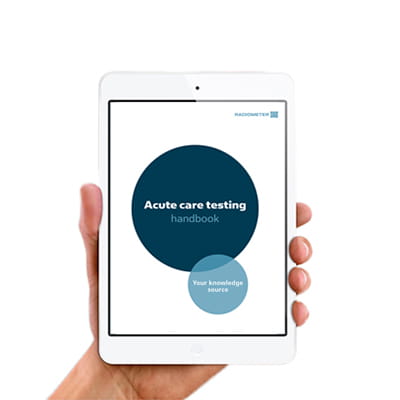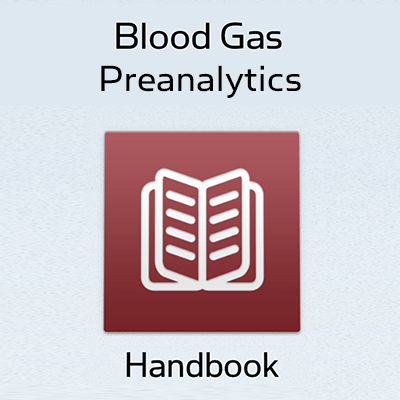Printed from acutecaretesting.org
April 2008
Blood gas results in respiratory disease - a useful “rule of thumb”
Summarized from Bailie JK. Simple, easily memorised “rules of thumb” for the rapid assessment of physiological compensation for respiratory acid-base disorders. Thorax 2008; 63: 289-90.
Respiratory acidosis and alkalosis are characterized by primary change in pCO2 (increase in the case of acidosis and decrease in the case of alkalosis). Secondary physiological compensation, aimed at returning blood pH to normal, is evident in blood gas results as a change in bicarbonate concentration (increase in the case of acidosis and decrease in the case of alkalosis).
A useful set of “rules of thumb” has been proposed to estimate the extent of physiological compensation, i.e. change in bicarbonate concentration (∆ HCO3–), to be expected for a given pCO2.
The proposed “rules of thumb” are:
- Acute respiratory acidosis - ∆ HCO3– = 1 mmol/l for each 1 kPa change in pCO2
- Acute respiratory alkalosis - ∆ HCO3– = 2 mmol/l for each 1 kPa change in pCO2
- Chronic respiratory acidosis - ∆ HCO3– = 4 mmol/l for each 1 kPa change in pCO2
- Chronic respiratory alkalosis - ∆ HCO3– = 3 mmol/l for each 1 kPa change in pCO2
For the purposes of the calculation normal HCO3– is taken as 24.4 mmol/L and normal pCO2 is taken as 5.3 kPa. If measured HCO3– differs significantly (± 5 mmol/L) from the estimated value then the acid-base disturbance is not purely respiratory in origin.
May contain information that is not supported by performance and intended use claims of Radiometer's products. See also Legal info.
Acute care testing handbook
Get the acute care testing handbook
Your practical guide to critical parameters in acute care testing.
Download nowRelated webinar
Evolution of blood gas testing Part 1
Presented by Ellis Jacobs, PhD, Assoc. Professor of Pathology, NYU School of Medicine.
Watch the webinar








